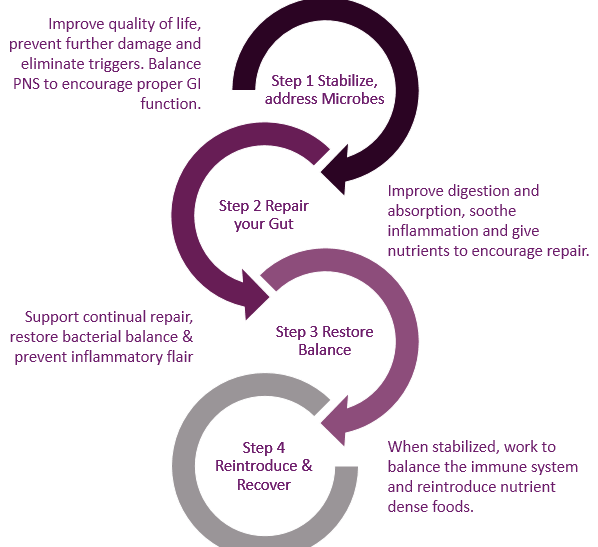DIGESTIVE HEALTH
“All disease begins in the gut” – Hippocrates
This quote is immensely powerful and holds such great importance to me! Although I won’t go into the depths of my personal story here, if you have read my About Me page, then you know why I got into Naturopathic Medicine, and also why I believe so strongly that with digestive compromise we see whole body compromise!
This is not just a personal opinion though, the medical research also supports that gastrointestinal dysfunction is involved in autoimmune disease, chronic inflammatory conditions, thyroid conditions, diabetes, weight gain/loss, mental health conditions, hormonal issues and more. Aside from the research though, when I see a patient who loses their bloating, gas, constipation, pain, rashes, brain fog, cravings, mood swings and muffin top, I see their lives change. That is proof enough for me!

What are signs of a healthy digestive system?
Although no one landed on this page because they are just overjoyed by how well their GI system is functioning, I also know that not many people know how what a healthy gut even looks like.
When we ingest food, or even think about ingesting food, we start a whole hormonal symphony that will increase our saliva, start our stomach acid production, begin the process of secreting bile from the gallbladder, rev up our pancreatic enzymes and start the movement of our intestinal tracts. After that food begins to move through our bodies we have even more hormones that tell us where to store our food as fuel, how to use that energy, and then signal back that we have eaten enough, and are satisfied enough to move through the rest of our activities, before having a bowel movement to make room for the other food that is coming in (Yes, some people have a bowel movement with each meal! :O )
Interestingly enough, our GI systems also have immensely important functions outside of just the processing of food. Some of these include:
- Estimates suggest that 60-80% of our immune system is actually concentrated in our intestinal tracts. Therefore, if you have an inflamed gut due to infections, dysbiosis or food intolerances, then you will likely experience systemic immune dysfunction and be at an increased risk for autoimmunity.
- Your gut is also known as your ‘second brain’. Have you ever had a ‘gut reaction’ or been told to ‘go with your gut’? That is exactly what I am referring to here! Your intestinal tract is significantly affected by the stress of your daily life. In turn, it also affects your brain, and perception, through the synthesis of gut derived neurotransmitters such as serotonin.
- Studies suggest that gut dysbiosis is a precursor to diabetes and insulin resistance. Yes, seriously. The bacterial populations of your intestinal tract can dictate your waistline, and how you deal with sugar ingestion. On the other side of this coin though, fat ingestion does not always make these people feel better due to a molecule known as lipopolysaccharide (LPS). Long story short, LPS is an endotoxin (an inflammatory component of the bad bacteria) that can enter our bodies more easily in the face of a high fat, low polyphenol diet. Therefore, if you are in ketosis, or eating a high (good) fat, low carbohydrate diet and you weight is still not budging then it is time to look into your gut!
Now this is just the very beginning of your digestive health education here, so make sure to stay tuned to the blog, and audios if you are craving more GI nerdy sessions!
What sends digestion off the rails?
There are many factors that can get the ball rolling towards a dysfunctional GI system, but some of the most common ones I see, especially in professional women who are fatigued out of life, are below:
- Stress! The Autonomic nervous system has two branches, the parasympathetic nervous system and the sympathetic nervous system. The former, PNS, is our rest and digest mode. The place that we should be if we want to sleep, digest our food properly, or allow for properly energy conservation. When we run through our days, stress through our meals and lose precious sleep then we are also sacrificing this parasympathetic function, and along with it we will see decreased ability to digest and assimilate nutrients.
- Eating inflammatory foods. Consumption of inflammatory foods such as processed oils, sugar, or your personal food sensitivities, can lead to intestinal inflammation, bloating, gas, pain and even intestinal hyperpermeability. This is a huge contributor to poor digestive function!
- Infections & Imbalances. Living in the modern world, especially if you are in North America, many people believe that gastrointestinal infections and parasites are rare. This is definitely not the case! Parasites such as giarda and blastocystis, and bacterial infections are more common than you would think. Additionally, conditions such as small intestinal bacterial overgrowth (SIBO) affect 60-80% of people with IBS, and nearly 100% of people with recurring digestive upset have dysbiosis. The awareness about the impact that these things have on our health is ever increasing, what we know is that these things must be taken seriously!
- Nutrient deficiencies. After all of the above it should not be surprising that nutrient deficiencies are commonly associated with, if not partially a cause of, digestive distress! B Vitamins, magnesium, iron and fat soluble vitamins are commonly depleted by over growths and infections. Increased levels of cellular turn over, and catabolic stress physiology can also deplete certain amino acids that are critical for repair of the gut lining and other tissues.
So what can you do to take control of your digestive health?
Eliminating food triggers and reducing stress levels are some of the at home strategies for addressing digestive issues. In many cases though, it is important to get testing done if these steps aren’t enough to get things back on track.
Below is a model I like to use to help people understand the steps that aare often required to help discover and treat digestive issues.

